Last week Arizona’s HB2281 law banning Tucson’s Mexican American Studies program was heard before the 9th circuit federal court of appeals. A lawyer representing two former MAS students argued that the law was vague and over broad, an infringement on the free speech of students, and was created with discriminatory racial animus. Read more
The case, Maya Arce v. John Huppenthal, revolves around four subsections of the law. The law bans any classes or courses that either…
- Promote the overthrow of the United States government.
- Promote resentment toward a race or class of people.
- Are designed primarily for pupils of a particular ethnic group.
- Advocate ethnic solidarity instead of the treatment of pupils as individuals.
Full video of the proceedings below (most lively part is 21:30–32:30)
The oral arguments opened with Erwin Chemerinsky, arguing on behalf of Maya Arce, laying out the facts of the case and arguing that the statue was unconstitutionally vague and over broad. Chemerinsky highlighted Huppenthal’s recent letter to TUSD to illustrate how the state of Arizona can cherry pick any small thing from a class to find that course to be in violation of the law. Chemerinsky then went on to highlight how legal protocols were not followed when the state of Arizona shut down Tucson’s Mexican American Studies program. Chemerinsky also noted a precedent that argued that such a breach of protocol is evidence of discriminatory intent. Furthering his argument that Huppenthal’s actions were motivated by racial animus, Chemerinsky pointed to the Cambria Study and Cabrero Report, which show how Tucson’s MAS program bolsters student achievement, and how the program was shut down despite those findings.
Next, Ms. Cooper, arguing for Huppenthal, took the stand. Her first point was to argue that Huppenthals 2015 letter to TUSD should not be taken into account as evidence. Her second point was to argue that the Cambria Study and Cabrero Report should also not be counted as evidence for technical reasons, but if it was counted as the evidence that it would be irrelevant anyway. One of the judges immediately cut off Cooper to say that it seemed to him that the fact that the program was outlawed, despite it’s positive effect on student achievement, is highly relevant and supports an inference of discriminatory intent (21:35). Shortly thereafter the judges focused on sub-section three, because it was the section that was struck down by the lower court, and pressed Cooper on how a course could violate sub-section three without violating any of the other clauses. Cooper responded unvoncingly that the state’s main concerned was that all of its student receive an equal education and not be divided along racial lines. One of the biggest highlights of the oral arguments came soon after when one judge offered up a hypothetical asking Cooper to explain why the law would not forbid such a scenario. Cooper was then then forced to admit that the law could in fact outlaw the judges scenario (30:09). The exchange culminated with one judge saying “how does that not suggest discriminatory animus, we don’t want minorities to develop any kind of ethnic pride?”. To which Cooper feebly responded that students have no constitutional right to ethnic pride. The conversation then turned to more technical questions of whether or not the law as a whole could stand if certain sub-sections were struck down.
On the whole the judges seemed open to the idea that discriminatory animus played a role in the law’s creation. They also seemed to come down firmly against sub-section three. To me, the most likely outcome is that the judges will strike sub section 3 from the statue and let the rest of the law stand, a result that would be considered a loss of MAS advocates. However it is always exceeding difficult to predict a cases outcome from the oral arguments alone.
*Note: Several people were turned away from the courthouse because they did not have government ID.
Related Articles
- Arizona’s Mexican-American Studies Ban Questioned By Appeals Judges [VIDEO]
- Chicana plaintiffs for Ethnic Studies explain why they fight for MAS at Ninth Circuit[VIDEO]
- MAS goes to Ninth Circuit, Arizona looks ignorant defending Ethnic Studies ban
- Meet the director of “culturally relevant” classes in TUSD, former MAS teacher Lorenzo Lopez [VIDEO]
- Arce v. Huppenthal Legal Materials
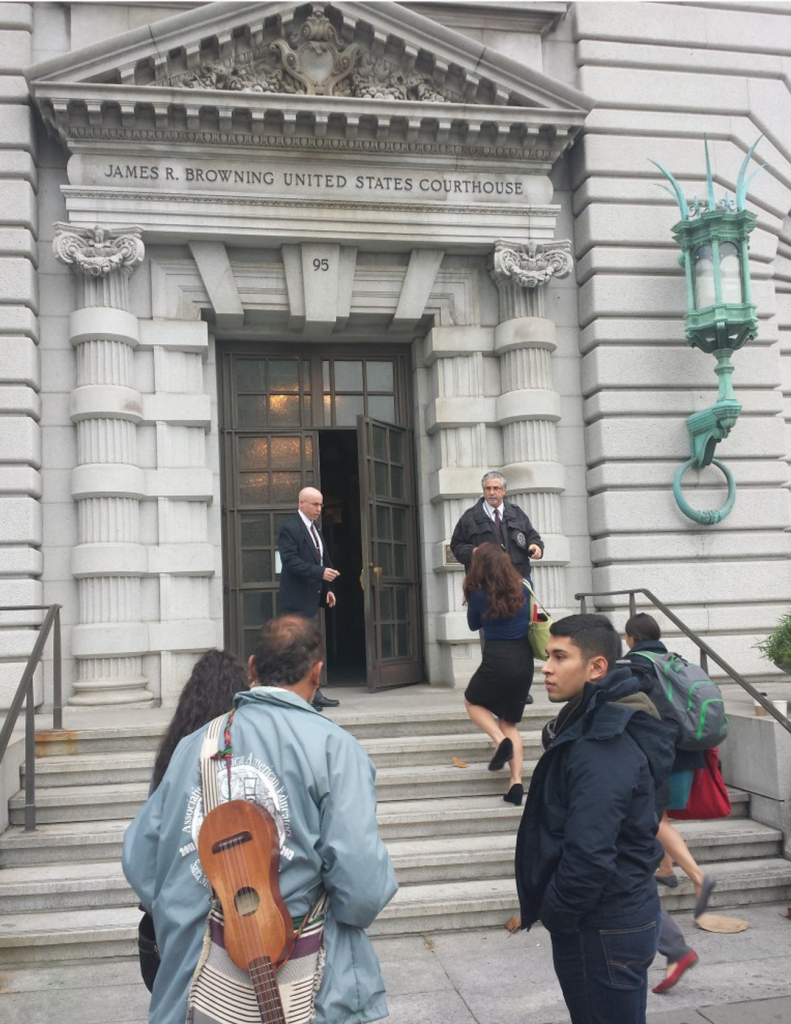
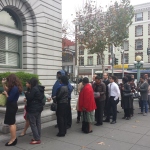
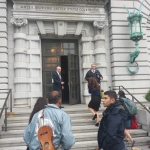
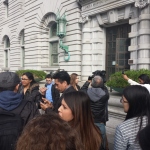
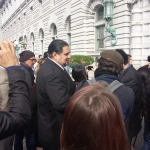

No Comments